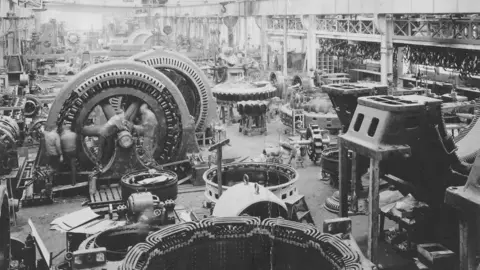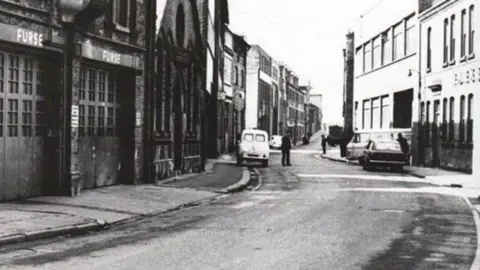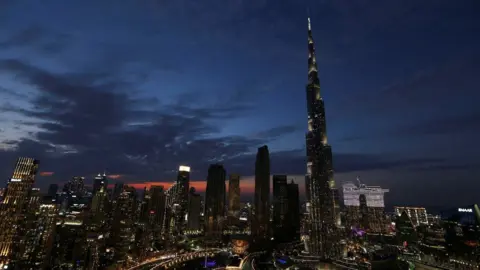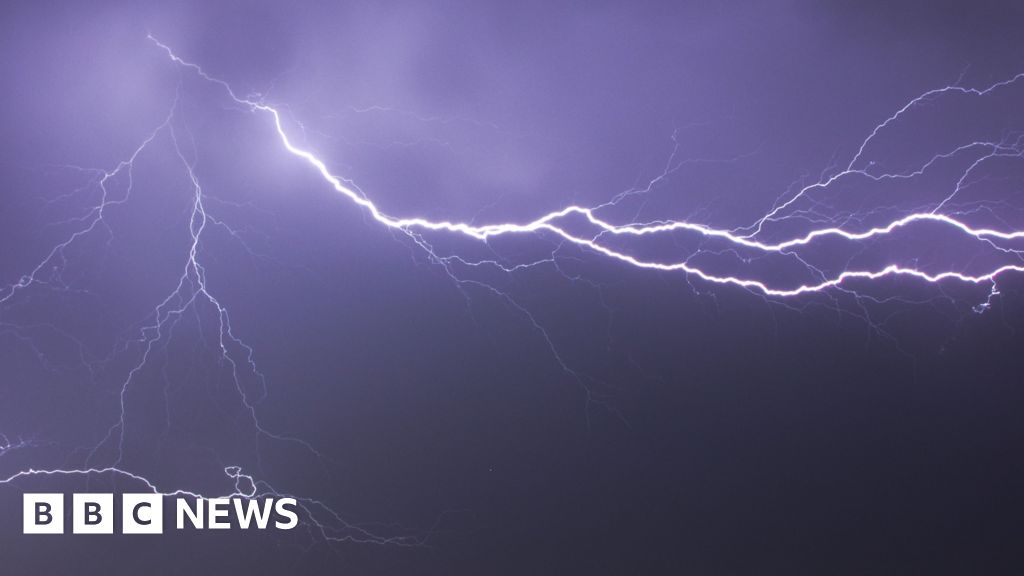Asha Patel, East Midlands
 ABB
ABB
Furse started off as a steeple-jacking business more than 130 years ago
A Nottingham firm that has protected buildings around the world from lightning strikes for more than 130 years, says climate change is pushing demand for its services.
Electrical engineering company Furse was established by William Joseph Furse who acquired a steeple-jacking business in the city in 1893.
In its history spanning more than a century, it has gone from protecting bell towers and church steeples to protecting the Burj Khalifa, currently the world’s tallest structure.
Now ABB, the global electrical engineering corporation which owns Furse, has opened a new 9,500 sq m (102,000 sq ft) facility in Nottingham at a cost of £27m.
 Reg Baker
Reg Baker
Traffic Street in Nottingham used to be home to a number of Furse facilities
The firm said an increase in extreme weather, that it attributed to climate change, has led to an increased demand in earthing and lightning solutions.
According to the Met Office, there are about 1.4 billion lightning strikes each year – about 44 strikes every second.
How does lightning protection work?
Lightning strikes can cause serious, visible damage, including damaging trees, damaging buildings and even causing death.
But ABB said “secondary effects” of lightning can also cause “catastrophic” damage to electronic systems inside buildings, including CCTV equipment, computers, alarm systems and more.
Lightning strikes even a kilometre away can disrupt or destroy electrical equipment inside buildings, the firm said.
Using the principle of a Faraday cage – an enclosure used to block some electromagnetic fields – ABB puts a mechanical system around buildings.
That system is able to “catch the lightning and bring the energy to the ground”, Andrea Castella, ABB’s Europe region leader said.
It also creates electronic systems that act as barriers to protect buildings from surges caused by lightning further away.
 Reuters
Reuters
The Burj Khalifa and other tall towers are protected by the Nottingham-founded brand
Paul Onyett global market development manager for ABB said while climate change was “one of the biggest factors” driving demand, changes to the way we work and live also played a role.
He said: “In cities we’re seeing taller buildings so they need more protection.
“We’re also seeing the transformation of digitalisation.
“So we’re seeing more and more data centres coming online and those particular data centres need much more protection from lightning activity and surges.”
Data centres are giant warehouses which house powerful computers used to run digital services – such as online banking, film streaming and AI processing.
In the UK, 100 new data centres – in addition to the estimated 477 currently running – are expected to be built over the the next few years.
As well as protecting digital infrastructure, Furse has also worked with some of the world’s most iconic buildings.
It is now working on the Jeddah Tower in Saudi Arabia, which once built, will surpass the Burj Khalifa as the world’s tallest structure.
More than 100 employees will relocate from the existing Furse foundry in Wilford Road to the new facility at Fairham Business Park.


